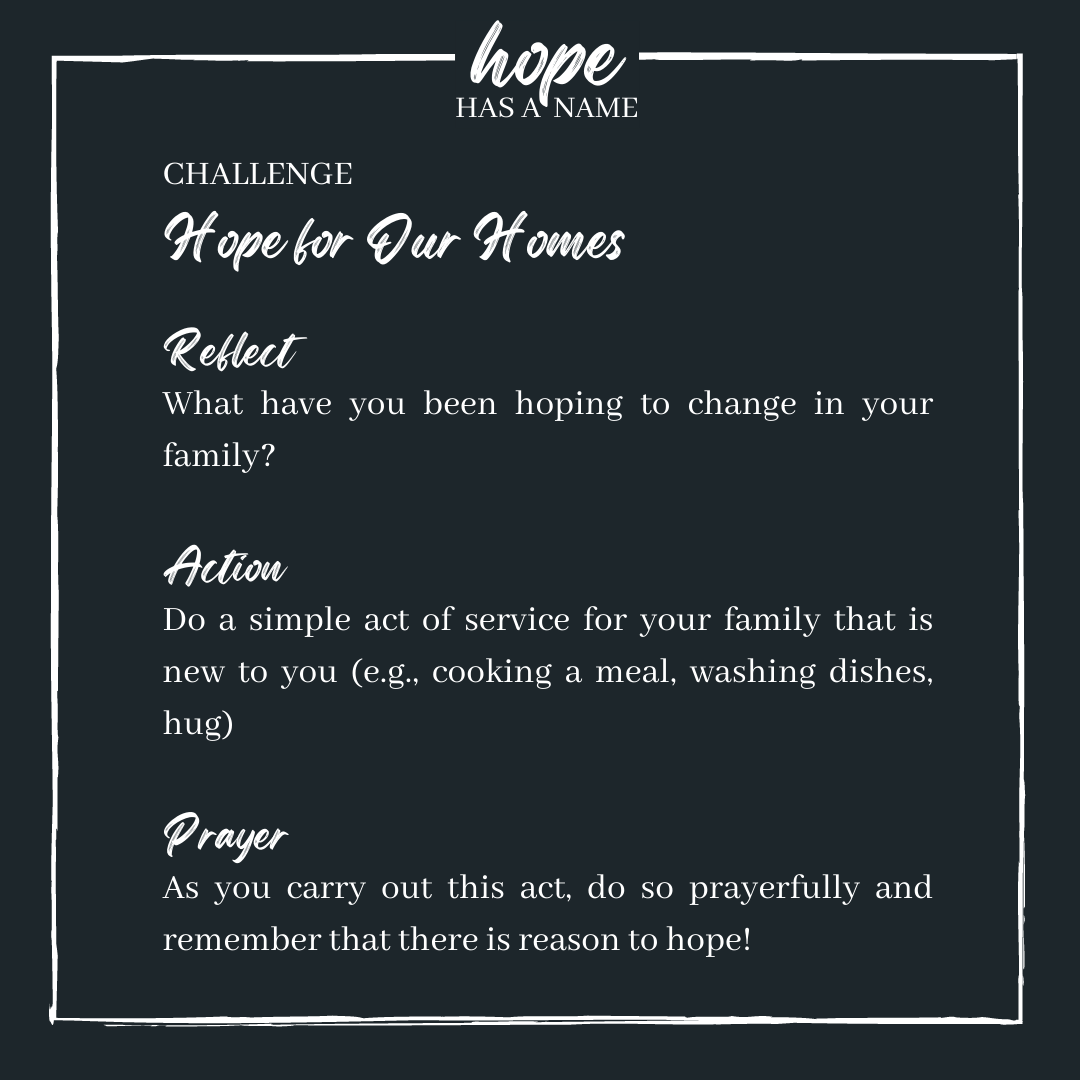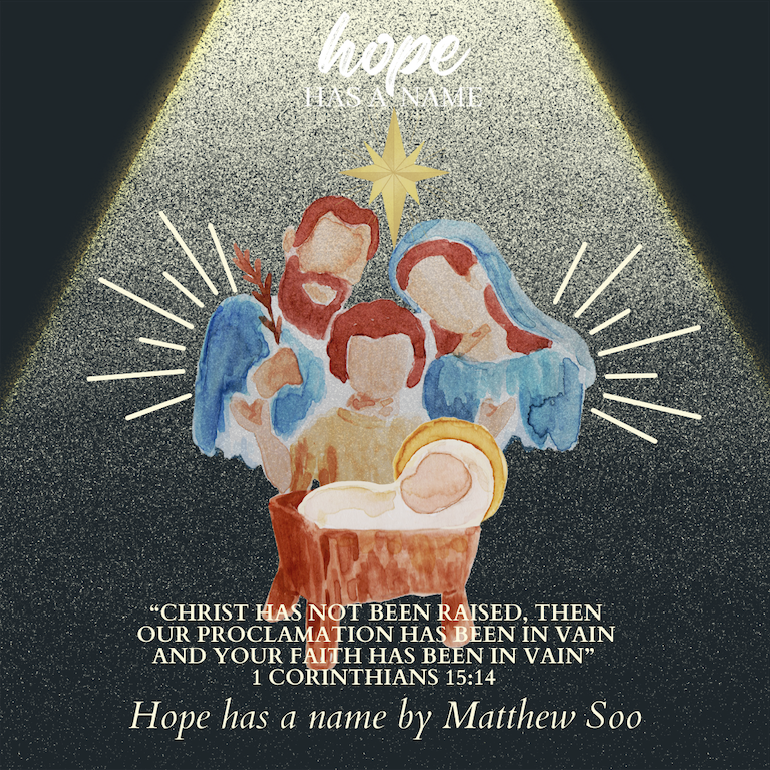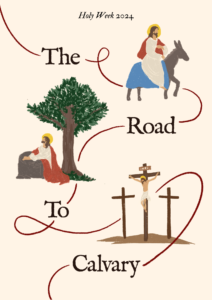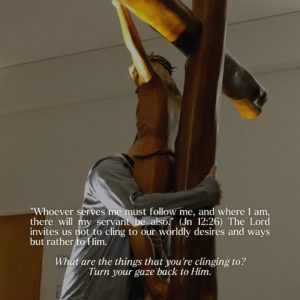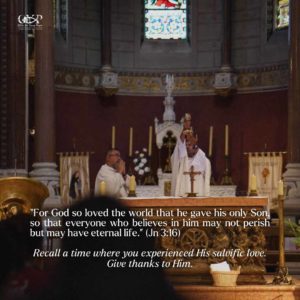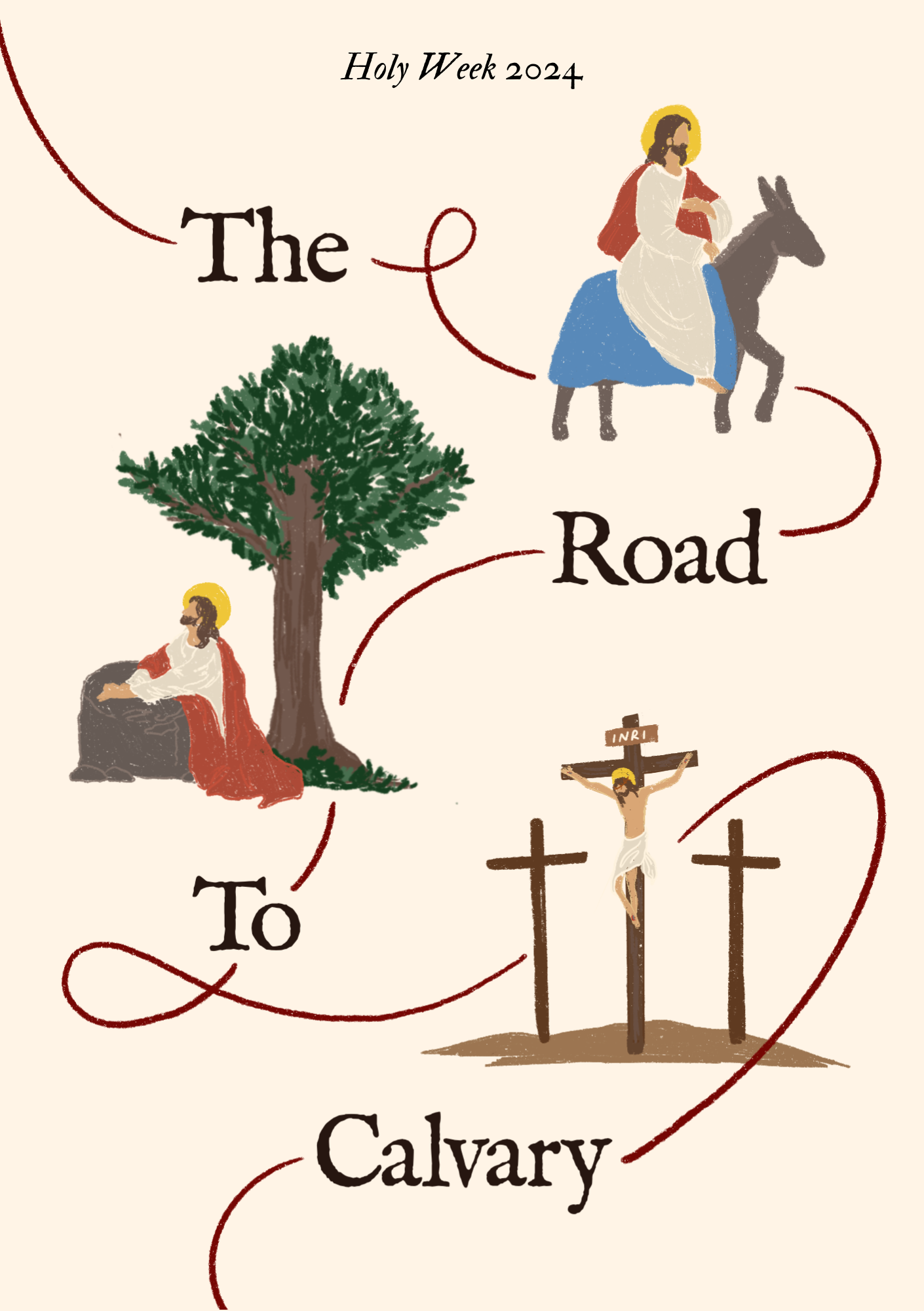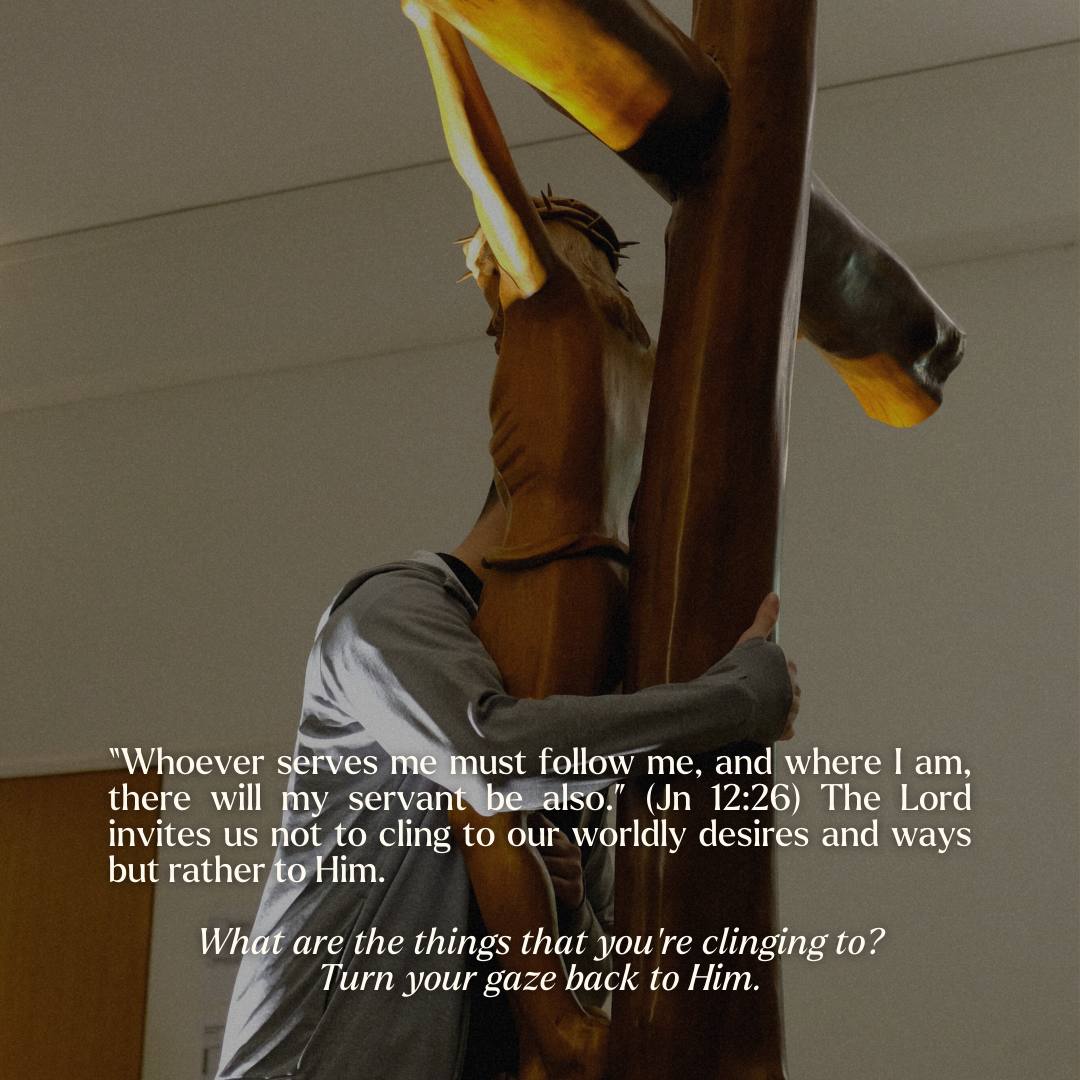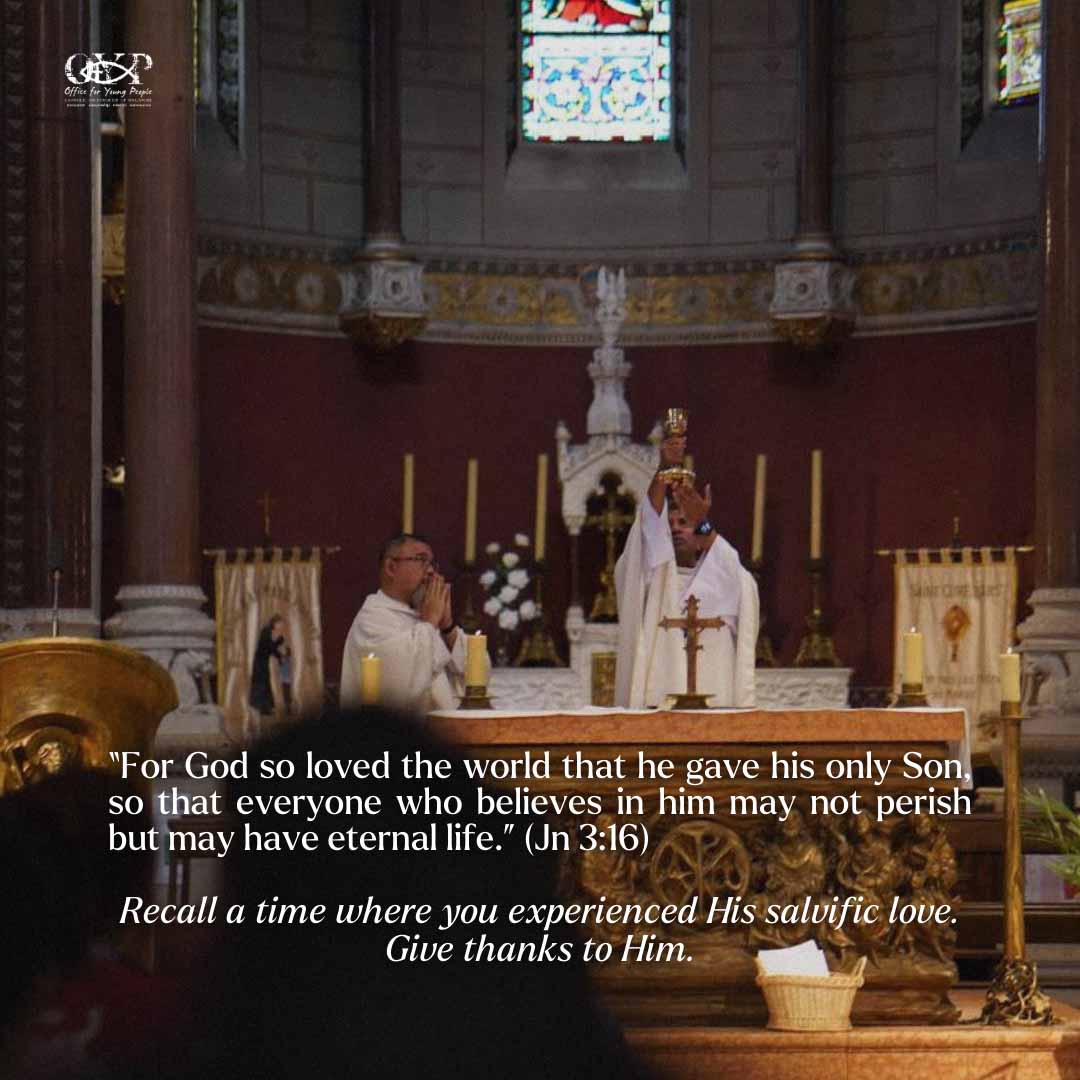By Matthew Soo, illustration by Isabelle Fuentes
What does the Church say about Hope?
Hope is the virtue which empowers us to desire the Kingdom of heaven and eternal life as our happiness (CCC 1817). In this sense, the Church understands Hope as the equivalent of “faith” (Spe Salvi, [2]). While this may sound unnecessarily complicated and intangible, Hope can be concretely defined in two different ways. First, Hope is faith. Second, Hope provides the objective proof of eternal life (cf Spe Salvi, at [12]). We explore these definitions in turn.
Hope is Faith
I once heard of Hope being described as “the act of looking forward with faith and trust in our God – knowing that we are never alone, for Christ is coming”. In proclaiming that Hope is Faith, what I mean then is that Hope and Faith are essentially synonyms. Indeed in Hebrews 10:23, we are encouraged to “hold fast to the confession of our hope without wavering, for he who has promised is faithful”. This exhortation came after the proclamation in verse 22 to “draw near to God with a sincere heart and with the full assurance that faith brings”. Taken together, these verses emphasize this synominity, where the “full assurance which faith brings” speaks toward the Hope which the early Church is exhorted to “hold fast without wavering” to.
Hope provides objective proof of eternal life – it forms the basis of our faith
Practically speaking, the fact that Hope is Faith would imply that the basis for Hope is our salvation through Jesus’s death on the Cross and his resurrection thereafter. In Hebrews 10:1-18, we are reminded that Christ was the perfect sacrifice whose singular act of death has cleansed our sin. This perfect sacrifice means that we need not (nor can we) attempt to continually save ourselves through our own human efforts (cf Hebrews 10:11-14). This is thus the cornerstone of our faith, for “Christ has not been raised, then our proclamation has been in vain and your faith has been in vain” (1 Corinthians 15:14). What this means is this – because of His fulfilment of the promises in the Old Testament we know that we believe in a living God (CCC 652). And this belief gives us an objective basis to hope in the second coming of our Lord.
—
What Hope means to me
Drawing on these definitions, Hope provides the assurance I need to live a Christian Life. Here, my belief in the truth of the resurrection means that I am anchored in the Truth of Christ. Because I have hope in the Lord, I am inspired to die to myself daily. Because I have Hope in the Lord, I am called to grow more in my understanding of faith. Because I have Hope in the Lord, I am called to love the people around me and bring them toward the Light of Christ.
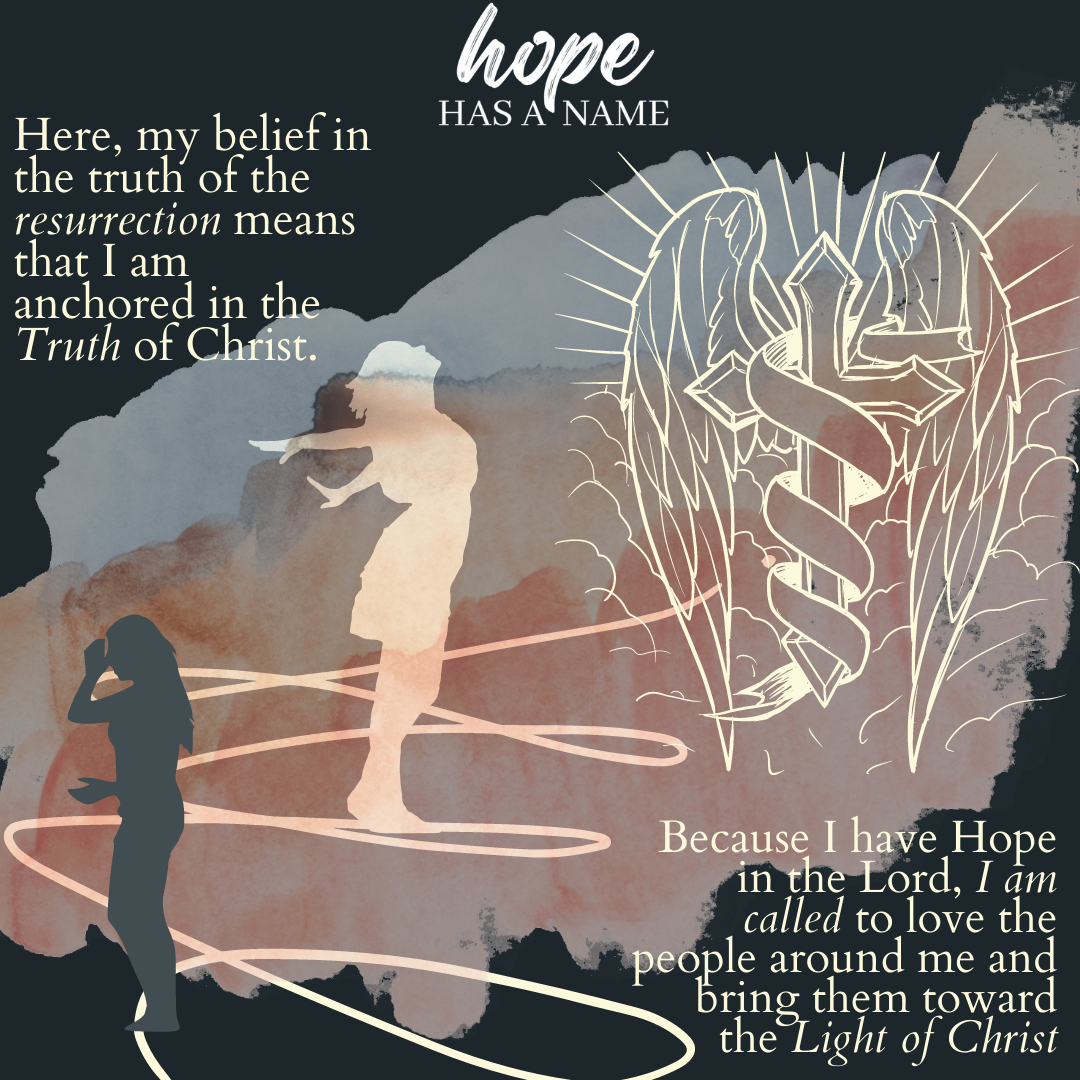
While these may seem like big and intangible words – they manifest directly in my life. In dying to myself, I am called to reject my own selfish desires for recognition. In this call to grow in my understanding of my faith, I am challenged to commit to attending Mass and reflecting on scripture daily. In the call to love others, I am challenged to spend my time reaching out to my brothers and sisters, to be a genuine friend to them and walk with them in their journey toward Heaven and allow them to enter more deeply into my life as well.
The point is this, the virtue of Hope has transformed my life in both big and small ways. This sense of self-assurance would have been impossible without the faith in the birth of our Lord, his death, and his resurrection. For if Jesus was not born to Mary; if Jesus did not die and rise again; then how would I be able to understand him as God incarnate? How could I believe that I am saved through his death? Thus – we see that Hope means more than a general sense of optimism. Instead, it is the Cornerstone of my life. Helping me orient myself toward a purpose greater than simply me.
—
Finding your Hope in this season of Advent
Brothers and Sisters – with the coming of Advent; once again we enter a time of waiting. Like the Three Wise Men; we wait expectantly to see the one who was promised to be a child where “authority rests upon his shoulders; and he is named Wonderful Counsellor, Mighty God, Everlasting Father, Prince of Peace” (Isaiah 9:6). This gives us the space to experience and find Hope for ourselves, for we know that this Child is truly Emmanuel; God with Us (Matthew 1:23).
Hope is not something that is intangible or something that we cannot experience. Instead, the Christmas story reflects the epitome of Hope. Recognizing our need for Salvation, Christ “emptied himself, taking the form of a slave, being born in human likeness” (Phillippians 2:7). This act of being born as the lowest of low should give us cause for Hope. It reflects a God who sees us and knows us (Psalm 139) – a God who in our suffering, came to suffer with us. Having experienced our pain and suffering in the most tangible form, we know that Jesus understands our own struggles. He has taken it upon himself to carry these burdens for us – if only we’d call to him (Romans 8:15). My friends, I invite you to call on the Lord today and claim that hope. Would you pray together with me – “Lord, show me what that Hope looks like this Christmas.” Amen.
Join the #OYPHopehasaName challenge!
